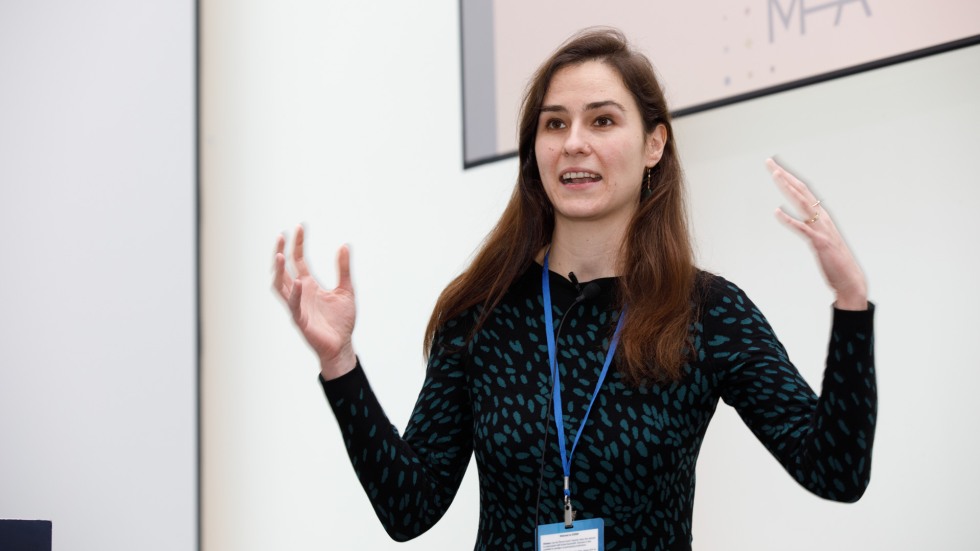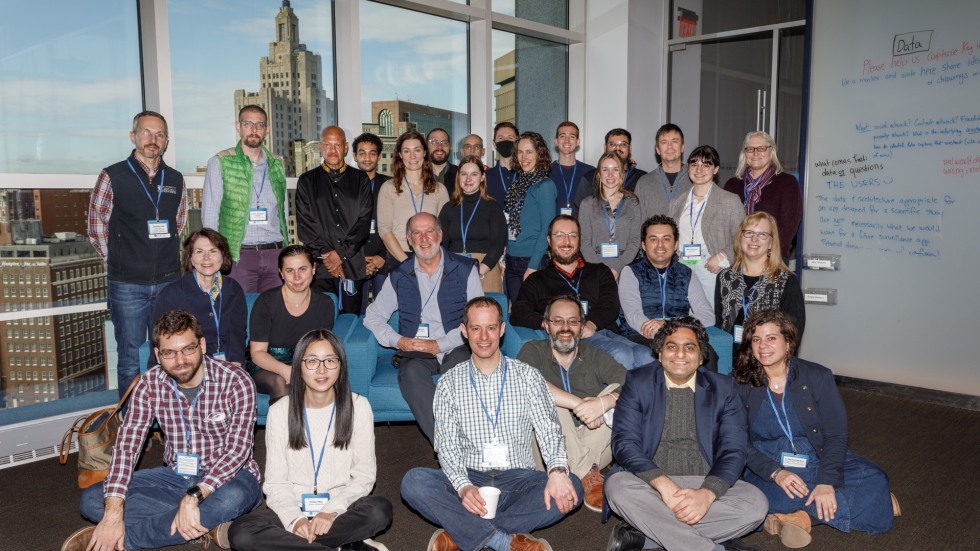Understanding how people move and interact with each other—locally and globally—is crucial for predicting and preventing the spread of a virus. But gathering this information raises important ethical questions as well. Inspired by this dichotomy, the workshop “Privacy and Ethics in Pandemic Data Collection and Processing” was held last week at the Brown University School of Public Health. It brought together thought leaders to explore the balance between harnessing technology to collect valuable health data, and protecting people’s privacy.
Sponsored by Brown’s center for Mobility Analysis for Pandemic Prevention Strategies (MAPPS), the Office of the Vice President for Research (OVPR) and the Institute for Computational and Experimental Research in Mathematics (ICERM), the workshop convened 37 experts from a wide range of fields including technology, ethics, political philosophy, and epidemiology over a three-day period.
The event featured keynote presentations, breakout sessions, and small working groups that focused on sharpening our understanding of the ethical and technical issues that arise in the process of collecting and analyzing data. Specifically, the group discussed collecting data on social media networks, investigating ways to keep people’s information private, and thinking through ways to incorporate this data into models that can help predict and explain the spread of disease.


